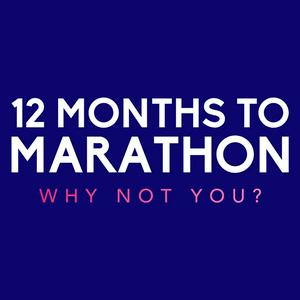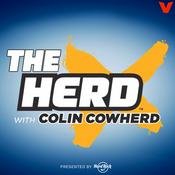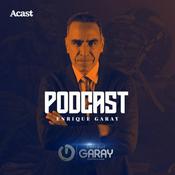82 episodios
- Send a text
Episode 82 – How Important Is Weekly Mileage?
When it comes to marathon training, how much do your weekly miles actually matter?
In this episode, I dive into one of the most common questions I get from runners: “How important is hitting my weekly mileage target?” Whether you're training for your first 26.2 or chasing a PB, this solo episode is full of honest talk on how to approach your mileage when life gets in the way, your legs feel heavy, or the plan needs tweaking.
We cover:
🗓 Why weekly mileage matters—but isn’t everything
⚖️ How to balance quality sessions vs. volume
🧠 Why you need to understand your training plan, not just follow it
🔁 How to adapt when things go off script
🧩 Why skipping one speed session won’t derail your race
If you're in the thick of marathon prep—weeks 8 to 14, where things get tough—this one’s for you. Get ready to stop panicking over missed runs and start thinking long-term.
Support the show 12 Months to Marathon - Episode 81 - Steve Till, Author of The Run of Life: How any runner can reach their mountain top
05/2/2026 | 47 minSend us a text
What does it mean to be a runner for life?
In this powerful conversation, I sit down with Steve Till, a man who’s not only completed over 100 marathons and 500+ parkruns, but also represented Great Britain in both 100km and 24-hour ultra races. Steve is a student of the sport, an embodiment of endurance, and the author of The Run of Life – a book that threads together running, philosophy, and personal growth.
We talk about:
🏃♂️ His running origins watching Dave Bedford on a black-and-white TV
🎯 Why long-term goals matter more than short-term perfection
🧠 The danger of overthinking running
💪 Staying active through cancer treatment
📚 Why he wrote his book – and what he hopes runners take from it
Whether you’re training for your first marathon, coming back from injury, or wondering how to make running part of a lifelong practice – this is a conversation that reminds you why you started, and why you’re not done yet.
Tune in and be inspired by someone who’s walked (and run) the talk.
Get The Run of Life here: https://amzn.eu/d/0idpmT25
Check out Steve's Website here: https://www.therunoflife.com/
Support the show- Send us a text
The Dark Side of Marathons
Marathon day is iconic.
The crowds, the build-up, the emotion — it’s unforgettable.
But marathon training?
That’s a very different story.
In this episode, I talk honestly about the dark side of marathons — not the distance, not the pace, but the mental and emotional challenges that show up during the training process, especially for first-time marathon runners.
I’m currently in week six of my own marathon training, and after working closely with runners preparing for spring marathons like London, I wanted to bring everything together into one clear message.
This episode is about reassurance, simplicity, and mindset.
In this episode, we cover:
Why marathon training often feels overwhelming — and why that’s normal
The “resentful runner” phase and why it actually means you’re training properly
Why guilt (especially charity guilt) makes training harder, not easier
How comparison and over-analysis cloud judgment and stall progress
Why first-time marathon runners cannot shortcut volume and load
Practical ways to deal with mental lows without suppressing or venting
Why mindset — not the plan — is often the real work in marathon training
If you’re:
Feeling tired, overwhelmed, or doubtful
Struggling to fit runs into real life
Wondering if you’re doing “enough.”
Resenting the next run on your plan
This episode is for you.
Marathon training is hard.
That doesn’t mean you’re doing it wrong.
It usually means you’re doing it right.
One run at a time.
One solution at a time.
Forgive yourself — then move forward.
🎧 Listen now to 12 Months to Marathon on Spotify, Apple Podcasts, or wherever you listen.
If this episode helped you, please:
Share it with a friend
Leave a quick review
Join the free running community via Instagram
And if you’re marathon training right now — keep going.
It all comes together if you do the work.
Support the show - Send us a text
🎙️ 12 Months to Marathon – Episode 79: Simplifying Running Speak
Are you overthinking the terminology in your training plan? In this episode, I dive deep into the real reason runners get overwhelmed by terms like “tempo,” “threshold,” and “floating reps” and why none of it actually matters if you’re not applying it in real life.
He shares:
A brutally honest take on over-intellectualising running
Why running by feel can take you further than fancy terms ever will
The story of how I broke sub-3 without even knowing what cadence meant
How to avoid the “gatekeeping” trap and focus on what really matters for runners over 35
Why understanding your plan beats trying to impress Strava with big words
If you’ve ever felt confused, “not smart enough,” or like you didn’t belong in the running world because of the jargon, this episode is for you.
👉 Follow John on Instagram: @12monthstomarathon
💬 DM “26.2” for coaching or join the free community in his bio
🎧 Hit play and simplify your training today
Support the show 12 Months to Marathon - Episode 78 - How to Understand your Marathon Training Plan
15/1/2026 | 14 minSend us a text
What do you do when the weather messes up your runs, or you fall behind in week 3 or 4 of training?
In this episode, John shares how a snowstorm, a cold, and some brutal treadmill miles forced him to adapt his own marathon training plan, and why that flexibility is exactly what most runners over 35 need to succeed.
You’ll learn:
Why missing a few early runs doesn’t mean you’re off track
How to adapt your plan without losing progress or confidence
The psychology of “training guilt” — and how to let it go
Why there’s no such thing as a perfect plan — but there is such a thing as the right one for you
How to think long-term and protect your body from injury and burnout
If you’ve had a bit of a wobble in your marathon prep, this episode will give you the permission and the plan to keep going — with clarity and confidence.
👉 Follow me on Instagram: @12monthstomarathon
📩 DM “26.2” for coaching on Instagram.
🎧 Listen now and remember: the next run is always the most important one.
Support the show
Más podcasts de Deportes
Podcasts a la moda de Deportes
Acerca de 12 Months to Marathon
Hi, I'm John Hill. I host 12 Months to Marathon—the running podcast for people over 35 with marathon dreams. Whether you are looking for a personal best or want to run a marathon, my story and regular tips should help you get there. I didn't run my first marathon until I was 36. I ran my first sub-3 marathon at the age of 45. If I can do it, so can you! For even more daily tips, make sure to follow me on Instagram https://www.instagram.com/12monthstomarathon/Thanks for listening.
Sitio web del podcastEscucha 12 Months to Marathon, El RePortero y muchos más podcasts de todo el mundo con la aplicación de radio.net

Descarga la app gratuita: radio.net
- Añadir radios y podcasts a favoritos
- Transmisión por Wi-Fi y Bluetooth
- Carplay & Android Auto compatible
- Muchas otras funciones de la app
Descarga la app gratuita: radio.net
- Añadir radios y podcasts a favoritos
- Transmisión por Wi-Fi y Bluetooth
- Carplay & Android Auto compatible
- Muchas otras funciones de la app


12 Months to Marathon
Escanea el código,
Descarga la app,
Escucha.
Descarga la app,
Escucha.




































